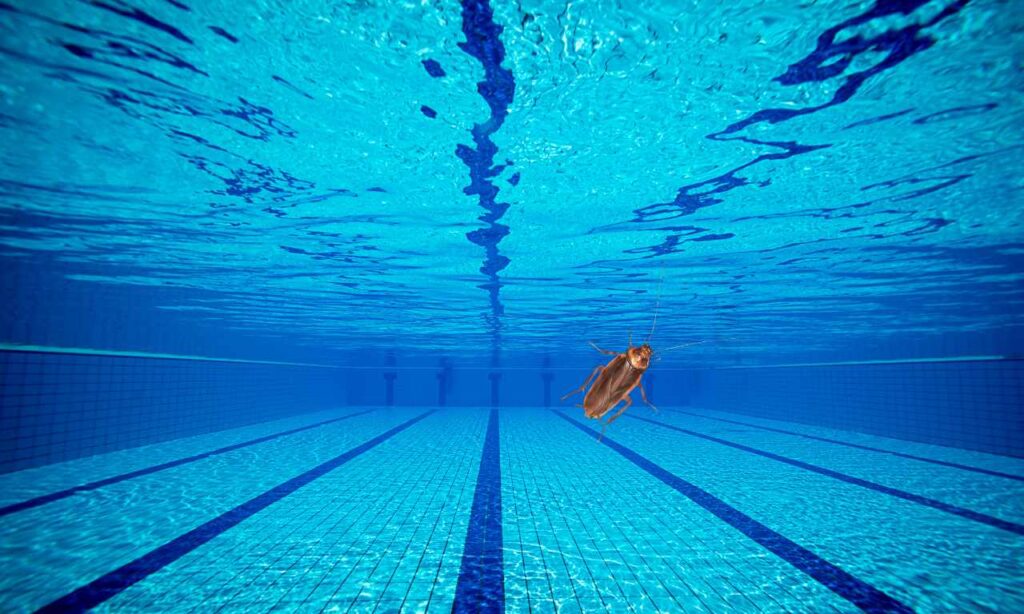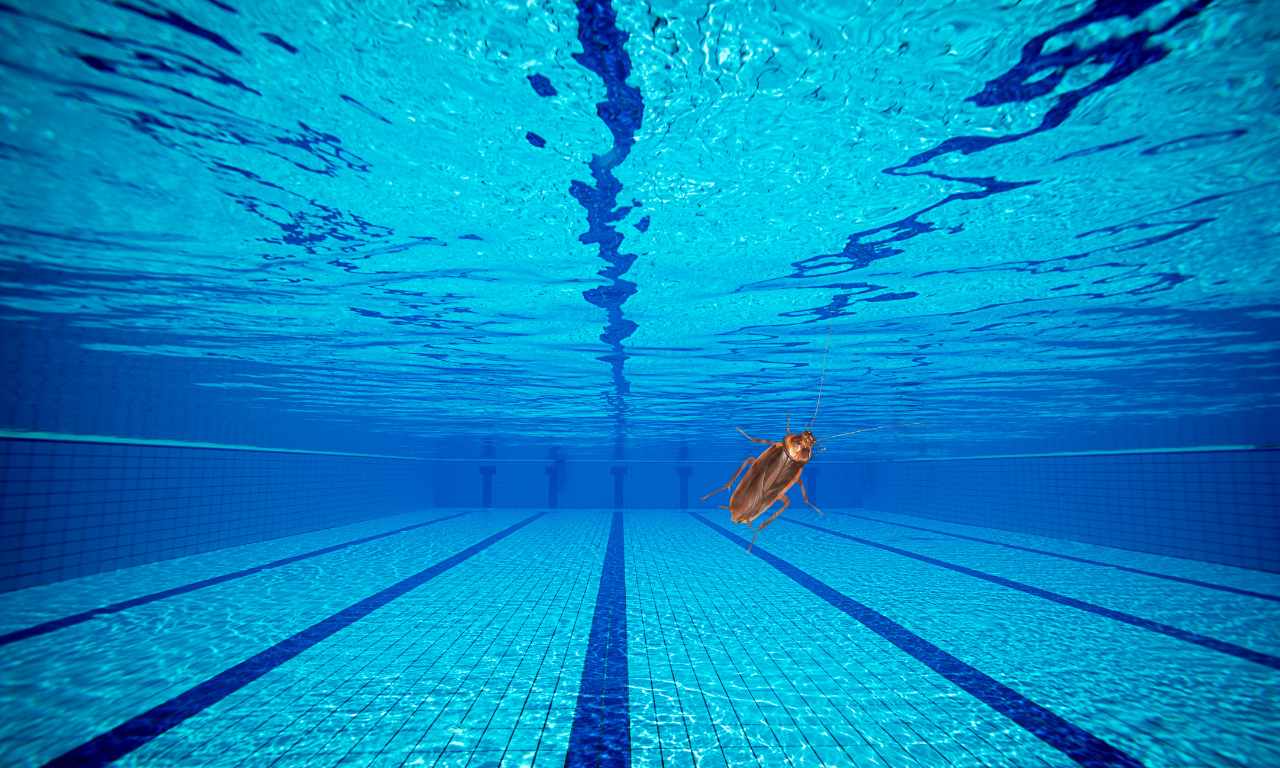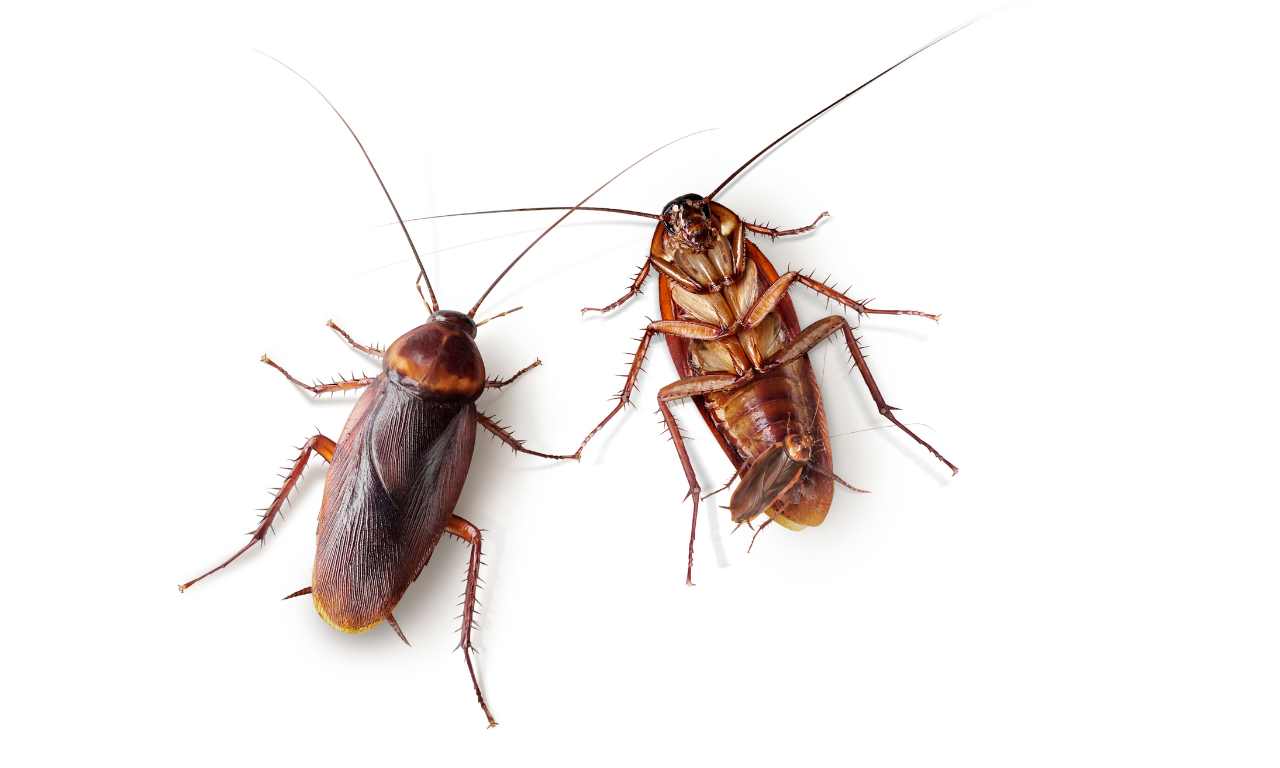
 Cockroaches can survive for several weeks without water, but they can only survive for a few days without food. The exact amount of time they can survive without water depends on a number of factors, such as temperature, humidity, and the species of cockroach. In general, cockroaches can survive longer without water than they can without food, but they still need water to survive.
Cockroaches can survive for several weeks without water, but they can only survive for a few days without food. The exact amount of time they can survive without water depends on a number of factors, such as temperature, humidity, and the species of cockroach. In general, cockroaches can survive longer without water than they can without food, but they still need water to survive.
Cockroaches are able to survive for extended periods of time without water because they are able to extract moisture from the food they eat. They also have a waxy coating on their exoskeleton that helps to prevent water loss. Additionally, some species of cockroaches are able to survive in very dry conditions by entering a state of suspended animation, where their metabolism slows down and they require less water.
However, if the environment is too dry, cockroaches will start to dehydrate. Once they are dehydrated, they will eventually die. The dryer the environment the shorter the cockroach will survive.
It is also important to note that while cockroaches can survive without water, they still need water to reproduce. Female cockroaches need water to produce eggs, and both males and females need water to produce sperm. Without water, cockroaches will not be able to reproduce and their population will eventually die out.
In summary, cockroaches can survive for several weeks without water, but the exact amount of time depends on the species of cockroach and the environment. They need water to survive and reproduce, so if you are trying to get rid of cockroaches, it is important to control their access to water as well as food.
Why Water Is So Important For Cockroach?
Water is essential for the survival of cockroaches for several reasons. First, cockroaches need water to maintain proper hydration levels in their bodies. Without enough water, cockroaches will dehydrate and eventually die.
Second, cockroaches need water to digest their food. Cockroaches have a specialized digestive system that uses enzymes to break down food and extract nutrients. These enzymes require water to function properly, so if cockroaches don’t have enough water, they will not be able to properly digest their food and will eventually starve.
Third, cockroaches need water to produce eggs. Female cockroaches need water to produce eggs, and both males and females need water to produce sperm. Without water, cockroaches will not be able to reproduce and their population will eventually die out.
Fourth, cockroaches use water to regulate their body temperature. Cockroaches are ectothermic, which means that they need an external source of heat to regulate their body temperature. They use water to cool their bodies down when they get too warm.
Finally, cockroaches need water to maintain the structural integrity of their exoskeleton. Their exoskeleton is made up of chitin, which is a protein that requires water to maintain its strength and flexibility. Without enough water, the exoskeleton will become brittle and the cockroach will be more vulnerable to injury.
In summary, water is essential for the survival and reproduction of cockroaches. It is necessary for proper digestion, egg production, regulation of body temperature and maintenance of exoskeleton. Without enough water, cockroaches will dehydrate and die.
Can Roaches Survive Being Drowned?
Cockroaches are known to be resilient creatures that can survive in a wide range of environments, but their ability to survive being submerged in water is somewhat limited.
Cockroaches are able to hold their breath for a significant amount of time, and they can survive being submerged in water for several minutes. This is possible because cockroaches have the ability to close the spiracles, which are small openings on the sides of their body that allow them to breathe.
By closing these spiracles, cockroaches are able to prevent water from entering their tracheal system and drowning. Additionally, some species of cockroaches are able to swim and walk on the surface of the water, which further increases their chances of survival when submerged.
However, if a cockroach is submerged for an extended period of time, it will eventually drown as it will not be able to hold its breath forever. The exact amount of time a cockroach can survive being submerged in water depends on a number of factors, such as the species of cockroach, the temperature of the water, and the presence of dissolved oxygen in the water. Some species of cockroach are better adapted to survive in water than others, and certain species are more tolerant of cold water than others.
It is also important to note that while cockroaches can survive being submerged in water, they are not aquatic creatures and do not thrive in a watery environment. Most species of cockroach prefer a dry habitat with a relatively high humidity level, and they are not well adapted to survive in a permanently water-logged environment.
Another important factor that is the presence of any chemical substance in the water. Many cleaning agents, pesticides and other chemical substances are harmful to cockroaches, and if a cockroach is submerged in water containing these substances, it is unlikely to survive.
Additionally, cockroaches can survive without food for few weeks but without water, they can only survive for a few days. Water is essential for the survival of cockroaches for several reasons. First, cockroaches need water to maintain proper hydration levels in their bodies. Without enough water, cockroaches will dehydrate and eventually die. Second, cockroaches need water to digest their food.
Cockroaches have a specialized digestive system that uses enzymes to break down food and extract nutrients. These enzymes require water to function properly, so if cockroaches don’t have enough water, they will not be able to properly digest their food and will eventually starve. Third, cockroaches need water to produce eggs.
Female cockroaches need water to produce eggs, and both males and females need water to produce sperm. Without water, cockroaches will not be able to reproduce and their population will eventually die out. Fourth, cockroaches use water to regulate their body temperature. Cockroaches are ectothermic, which means that they need an external source of heat to regulate their body temperature.
They use water to cool their bodies down when they get too warm. Finally, cockroaches need water to maintain the structural integrity of their exoskeleton. Their exoskeleton is made up of chitin, which is a protein that requires water to maintain its strength and flexibility. Without enough water, the exoskeleton will become brittle and the cockroach will be more vulnerable to injury.
In summary, cockroaches can survive being submerged in water for a short period of time, but they cannot survive being drowned. They have the ability to hold their breath and close their spiracles to prevent water from entering their tracheal system, but eventually they will suffocate if they remain submerged for an extended period of time or in water with harmful substances. Additionally, even though they can survive being submerged in water, it is not an ideal environment for them to thrive in.
Can Cockroaches Come Back To Life After Drowning?
 Cockroaches, like many other insects, have a high tolerance for extreme conditions, but they cannot come back to life after drowning. Once a cockroach has drowned, it is dead and cannot be revived.
Cockroaches, like many other insects, have a high tolerance for extreme conditions, but they cannot come back to life after drowning. Once a cockroach has drowned, it is dead and cannot be revived.
When a cockroach drowns, water enters its tracheal system, which is the network of tubes that carries oxygen to its cells. When water enters the tracheal system, it disrupts the normal gas exchange process, preventing the cockroach from getting the oxygen it needs to survive. Without oxygen, the cockroach’s cells quickly die, and the cockroach is unable to revive.
Additionally, when a cockroach is submerged in water, the pressure of the water causes damage to the structure of the cockroach’s body. This damage is irreversible and the cockroach will not be able to recover from it.
It is also important to note that drowning is not a humane way to control cockroach populations. Cockroaches are living creatures and deserve to be treated with respect and compassion. There are many other methods of controlling cockroach populations that are more humane and effective, such as using chemical or non-chemical methods to control their access to food, water and sanitation.
It’s also important to note that cockroaches have a relatively high resistance to environmental factors, such as extreme temperature, lack of oxygen and high levels of radiation, which can be associated to their ability to survive in environments that are not suitable for human life. However, drowning is not an environmental factor, but rather a physical action that can cause direct damage to the cockroach’s body.
In conclusion, cockroaches cannot come back to life after drowning. Once a cockroach has drowned, it is dead and cannot be revived. Drowning is not an effective or humane method of controlling cockroach populations and there are many other methods that are more humane and effective. Instead of drowning it’s better to control their access to food, water and sanitation and use chemical or non-chemical methods to control cockroach populations.
How Long Can A Cockroach Survive In Water?
Cockroaches can survive being submerged in water for a limited period of time, but the exact amount of time depends on a number of factors.
The species of cockroach is an important factor in determining how long it can survive in water. Some species are better adapted to survive in water than others. For example, the American cockroach (Periplaneta americana) is known to be a strong swimmer and can survive being submerged in water for several minutes. In contrast, the German cockroach (Blattella germanica) is not a good swimmer and can survive being submerged in water for only a few minutes.
The temperature of the water is another important factor in determining how long a cockroach can survive in water. Cold water slows down the metabolism of cockroaches, which allows them to survive longer without oxygen. However, if the water is too cold, it can cause hypothermia, which can be fatal. On the other hand, warm water increases the metabolism of cockroaches, which causes them to consume oxygen more quickly. This can cause them to drown more quickly.
The presence of dissolved oxygen in the water is another important factor in determining how long a cockroach can survive in water. Oxygen is essential for the survival of cockroaches, and the more oxygen that is dissolved in the water, the longer a cockroach can survive. However, if the water is stagnant and has a low level of dissolved oxygen, a cockroach will drown more quickly.
It is also important to note that while cockroaches can survive being submerged in water for a limited period of time, they are not aquatic creatures and do not thrive in a watery environment. Most species of cockroach prefer a dry habitat with a relatively high humidity level, and they are not well adapted to survive in a permanently water-logged environment. Additionally, if a cockroach is submerged in water with cleaning agents or other chemical substances that are harmful to cockroaches, it will not survive.
In summary, cockroaches can survive being submerged in water for a limited period of time, but the exact amount of time depends on the species of cockroach, the temperature of the water, and the presence of dissolved oxygen in the water. However, it is not an ideal environment for them to thrive in and they need to be in a dry habitat with a relatively high humidity level.
Also, if a cockroach is submerged in water with cleaning agents or other chemical substances that are harmful to cockroaches, it will not survive. Therefore, it is not advisable to use drowning as a method of cockroach control, as it is unlikely to be effective in the long term, and it is inhumane. Instead, it is recommended to control their access to food, water and sanitation, and use chemical or non-chemical methods to control the cockroach population.
Welcome to my blog. I have been doing pest control for years since my house, garden and pets were always attacked by various kinds of pests and as a result I had to know proper pest control techniques that works. In this blog I share all the tips and tricks that I know and I hope you’ll find it helpful.
